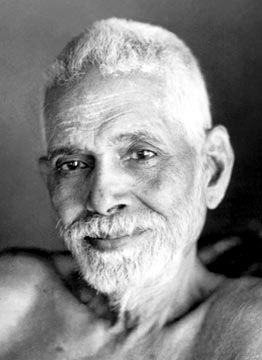Scientific Proof of the Existence of God
An Interview with Amit Goswamiby Craig Hamilton
Goswami is convinced, along with a number of others who subscribe to the same view, that the universe, in order to exist, requires a conscious sentient being to be aware of it. Without an observer, he claims, it only exists as a possibility. And as they say in the world of science, Goswami has done his math. Marshalling evidence from recent research in cognitive psychology, biology, parapsychology and quantum physics, and leaning heavily on the ancient mystical traditions of the world, Goswami is building a case for a new paradigm that he calls "monistic idealism," the view that consciousness, not matter, is the foundation of everything that is.
A professor of physics at the University of Oregon and a member of its Institute of Theoretical Science, Dr. Goswami is part of a growing body of renegade scientists who in recent years have ventured into the domain of the spiritual in an attempt both to interpret the seemingly inexplicable findings of their experiments and to validate their intuitions about the existence of a spiritual dimension of life. The culmination of Goswami's own work is his book The Self-Aware Universe: How Consciousness Creates the Material World. Rooted in an interpretation of the experimental data of quantum physics (the physics of elementary particles), the book weaves together a myriad of findings and theories in fields from artificial intelligence to astronomy to Hindu mysticism in an attempt to show that the discoveries of modern science are in perfect accord with the deepest mystical truths.
Quantum physics, as well as a number of other modern sciences, he feels, is demonstrating that the essential unity underlying all of reality is a fact which can be experimentally verified. Because of the enormous implications he sees in this scientific confirmation of the spiritual, Goswami is ardently devoted to explaining his theory to as many people as possible in order to help bring about what he feels is a much needed paradigm shift. He feels that because science is now capable of validating mysticism, much that before required a leap of faith can now be empirically proven and, hence, the materialist paradigm which has dominated scientific and philosophical thought for over two hundred years can finally be called into question.
WIE: In your book you refer to this new paradigm as "monistic idealism." And you also suggest that science seems to be verifying what a lot of mystics have said throughout history—that science's current findings seem to be parallel to the essence of the perennial spiritual teaching.
AG: It is the spiritual teaching. It is not just parallel. The idea that consciousness is the ground of being is the basis of all spiritual traditions, as it is for the philosophy of monistic idealism—although I have given it a somewhat new name. The reason for my choice of the name is that, in the West, there is a philosophy called "idealism" which is opposed to the philosophy of "material realism," which holds that only matter is real. Idealism says no, consciousness is the only real thing. But in the West that kind of idealism has usually meant something that is really dualism—that is, consciousness and matter are separate. So, by monistic idealism, I made it clear that, no, I don't mean that dualistic kind of Western idealism, but really a monistic idealism, which has existed in the West, but only in the esoteric spiritual traditions. Whereas in the East this is the mainstream philosophy. In Buddhism, or in Hinduism where it is called Vedanta, or in Taoism, this is the philosophy of everyone. But in the West this is a very esoteric tradition, only known and adhered to by very astute philosophers, the people who have really delved deeply into the nature of reality.
http://twm.co.nz/goswintro.htmhttp://twm.co.nz/goswam1.htm
